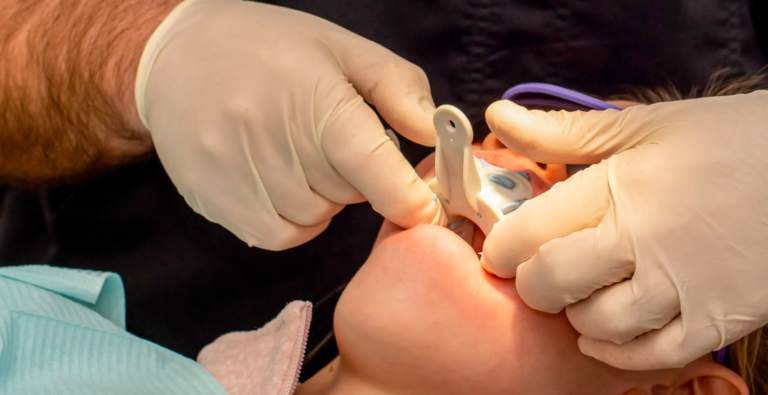Dental care is essential for everyone, but for individuals with mental disabilities, the approach to maintaining oral health requires more thoughtfulness, understanding, and patience. Whether the disability is cognitive, emotional, or physical, people with mental disabilities may face additional challenges when it comes to dental hygiene, making it crucial for caregivers, dental professionals, and families to work together to ensure proper care.
By adapting practices to meet these unique needs, we can provide dental care that promotes not only good oral health but also emotional well-being for those living with mental disabilities.
Understanding the Unique Challenges
One of the primary challenges in dental care for patients with mental disabilities is communication. Many individuals may struggle to express discomfort, fear, or confusion, making it difficult for dentists to assess their needs. In some cases, patients may have difficulty understanding the importance of oral hygiene or following instructions during dental visits. Furthermore, certain disabilities may limit a person’s ability to brush or floss effectively, leading to a higher risk of cavities, gum disease, and other oral health issues.
Additionally, sensory sensitivities are common among people with mental disabilities. The bright lights, sounds, and tools used in a typical dental office may cause anxiety or distress. For these patients, a standard dental visit may feel overwhelming, which can further contribute to avoidance or poor oral hygiene habits.
Creating a Comfortable and Supportive Environment
Creating a comfortable, non-threatening environment is one of the first steps in providing effective dental care for patients with mental disabilities. For many individuals, a calm and predictable setting can significantly reduce anxiety. Dental offices should be equipped to meet the sensory needs of these patients, offering features like softer lighting, quieter equipment, and waiting areas free from loud noises or other distractions.
Introducing patients to the dental office before their appointment is another valuable strategy to help alleviate fear. A pre-visit tour allows patients to meet the staff, get familiar with the dental tools, and learn about the procedures. This can be especially helpful for reducing anxiety. For patients who are easily overwhelmed, many dental offices in Las Vegas offer sedation dentistry options, which provide a relaxed and stress-free experience during the procedure. Additionally, calming techniques such as deep breathing exercises or soothing music can be used to further ease anxiety and create a more comfortable atmosphere for the patient.
Tailoring the Dental Appointment
When preparing for a dental visit, it’s important to tailor the approach based on the patient’s specific needs. Dentists and caregivers should communicate in advance about the patient’s disability, any triggers for anxiety, and specific dental challenges they may face. For example, patients with autism may have sensory sensitivities to touch, sounds, or certain tastes, while individuals with Down syndrome may need assistance with proper brushing techniques due to physical limitations.
During the appointment, it’s crucial to go at the patient’s pace. Dental professionals should take extra time to explain what will happen during each step of the procedure, using clear and simple language. Many patients with mental disabilities benefit from a slower, more methodical approach, allowing them to process the information and become comfortable with each step. For some patients, a visual schedule or a storybook describing the dental visit may help reduce uncertainty and anxiety.
Personalized Care Plans
Creating a personalized dental care plan is an essential part of meeting the needs of patients with mental disabilities. This plan should consider the patient’s specific cognitive abilities, physical challenges, and emotional needs. For patients who have difficulty brushing their teeth independently, caregivers may need to assist with brushing or use adaptive tools such as electric toothbrushes or specialized flossing aids.
Regular dental check-ups are essential to monitor oral health, but preventative care goes beyond just visits to the dentist. Caregivers should be equipped with knowledge on how to assist patients with their daily oral hygiene routine, offering guidance on how to make brushing and flossing easier and more effective. Developing a consistent oral care routine, along with the use of fluoride treatments and sealants, can help prevent cavities and gum disease.
Education and Training for Caregivers
For families and caregivers of individuals with mental disabilities, education, and training are essential for maintaining optimal oral health. Understanding the specific needs of the patient and learning about alternative techniques and tools can significantly improve the success of daily oral care routines. Caregivers should be educated on how to spot signs of oral health issues, such as gum inflammation or cavities, and how to effectively communicate any concerns with a dental professional.
In addition to providing specialized care, it’s crucial to consider the financial aspects of dental treatment for patients with mental disabilities. Access to affordable dental care can be a significant concern for many families. Fortunately, there are options available that can ease this burden. For instance, finding dental insurance in Idaho with no waiting period can be a game-changer for those needing immediate care. Such plans ensure that patients receive the necessary treatments without the stress of long delays, allowing caregivers to focus on the well-being of their loved ones. This approach not only supports the physical health of patients but also contributes to their overall quality of life.
Collaboration Between Dental Professionals and Caregivers
Finally, collaboration between dental professionals and caregivers is key to the success of dental care for individuals with mental disabilities. Open communication allows for the sharing of critical information regarding the patient’s specific needs and challenges. Dentists should be knowledgeable about the disability and how it impacts oral care, and caregivers should be informed about the importance of regular dental visits and preventive care.
By working together, caregivers and dental professionals can create an environment where patients feel safe, respected, and supported, and where their oral health can thrive.
In Conclusion
Dental care for patients with mental disabilities is not a one-size-fits-all approach. Tailoring dental practices to meet the individual needs of each patient ensures they receive the best care possible while fostering a positive dental experience. By creating a comfortable environment, customizing dental visits, and offering personalized care plans, we can help patients with mental disabilities achieve better oral health and improve their overall quality of life. It’s a matter of making their smiles matter—one tailored visit at a time.

